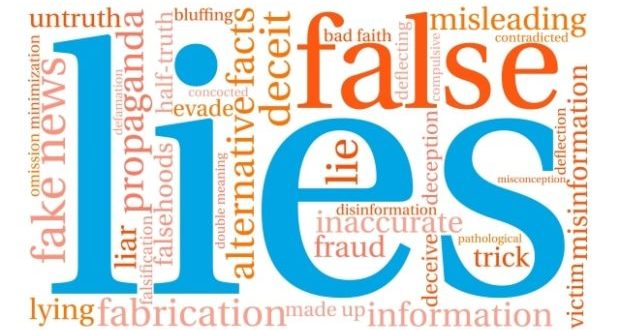How To Deal With A Child That Lies
At some point, all kids will find themselves in a confusing jumble due to their wrongdoing. Lies will often appear in this mess of children and teenagers, either as a cover-up or reason. Parents need to learn how to deal with a child that lies.
The way we react can strengthen the bond and build their honesty, or it can allow them to see lying as a quick way out of trouble. We can’t protect them unless we know what’s going on. If they can’t talk about their poor decisions or misadventures with you who can direct them, they won’t learn from you.
Why Do Children Lie?
Most parents believe their children lie to get what they want, avoid a punishment, or doing something they don’t want. These’re common motives, but there’re some less apparent explanations why children do not tell the truth — or at least not the whole truth.
Children could be trying to:
- Cover something up so they don’t get caught and see how you react if you hear them lying.
- Make their storyline more interesting or improve their sound.
- Get attention, even though they know they’re lying.
- Get what they like – for example, telling Grandma, “Mum, let me have lollies before dinner.”
- Children lie to gain publicity.
When do Children Begin to Tell Lies?
According to a study, children will learn to tell lies as early as age 3. This is when kids realize you aren’t a mind reader, so they can say things that aren’t accurate without you noticing.
At the age of 4-6 years, children lie more. They could boost their ability to tell lies by matching their facial expressions and voice to what they’re saying. Unfortunately, when you ask kids to justify what they’re doing, they almost always do so.
Children become better at lying without being caught as they get older. Since children have more vocabulary and are better at knowing how other people think, the lies become more complex. For example, children say white lies to avoid harming other people’s feelings when they hit puberty.
Ten Methods of Preventing a Child from Lying
1. Make it a Family Tradition to Always Say The Truth
Establish a simple household rule highlighting the importance of sincerity and truthful communication as part of your family’s rules and values. This will show your children you respect the facts, even though it’s difficult to say.
Discuss the various types of lies and the harm each may cause. Then, explain why you expect honesty and the different motives people have for lying.
2. Threatening Them With Punishment if They Lie Isn’t a Good Idea
According to a study, children who are punished for lying are more likely to lie in the future than children who are taught the value of telling the truth.
Researchers discovered kids were more likely to lie when threatened with punishment and more likely, to tell the truth when they thought it would make an adult happy with them in a study involving 372 kids aged 4 to 8.
3. When They Say The Truth, Don’t Get Furious
So they’ve made a massive blunder. You clench your teeth to keep from screaming so loudly that it registers as a blip on the satellite. But – and this is huge – they’re showing you what they’ve done. Nothing is more critical.
The more they believe you can handle the truth without losing your mind (which is difficult, I know! ), the more they can trust us with it. When you understand how difficult it must have been for them to be frank with you, it would mean the world to them.
‘It must have been tough for you to tell me that. That you had the strength and bravery to do so means a lot to me.’
4. Use Parental Control Program
Using parental control software, parents can monitor their children’s online activities without them knowing. For instance, parents can detect their children’s lies and question them when checking whether their children are watching pornographic online content or engage in unusual online behaviors.
They can also set time limits on their children’s online time, filter and block videos they don’t want them to see, such as bullying and pornography.
5. Use Stories That Inspires Your Child
Talwar and her colleagues conducted an interesting study in which an experimenter read a story to children about George Washington telling the truth about cutting down a cherry tree and his father responding positively to his honesty.
When kids heard this story, they were much less likely to lie about peeking. The kid who cried wolf tale had no impact on the amount of lying. George Washington’s optimistic lesson could be more persuasive or encouraging to children.
6. Try to Figure Out Why Your Child is Having Trouble Being Honest
Consider why your child feels compelled to lie. For instance, perhaps your child lies about their school grades because they are under so much pressure to succeed. If your child repeatedly lies to escape punishment, the punishments you’re using are so severe your child is unable to tell the truth.
Remember, the goal of consequences is to educate a child, not to cause them pain.
Once you’ve figured out why your child is lying, encourage them to speak about their concerns by gently bringing up the subject positively and warmly.
7. Praise Truthfulness
When your child says the truth, always be supportive, optimistic and compliment them for being honest: “Thank you for telling me you broke the glass. I appreciate it when you tell it like it is.”
If your child is prone to lying, build a reward system where they earn a sticker every day if they do not lie. Agree ahead of time that he or she will earn treats until they have a certain amount of stickers.
8. Teach Your Child Why Lying Isn’t a Good Idea
Teach your child the value of honesty and how lying will prevent people from trusting them even though they tell the truth. Reading books with your child that clearly states lying is not helpful, such as ‘The Boy Who Cried Wolf,’ is an excellent example.
It’s beneficial to talk with your child about what he’s learned after you’ve read the stories. Remember, this is supposed to be a relaxing and enjoyable experience, not a moral lesson!
9. Prioritize Your Relationship With Your Kids
The core of truth-telling is a relationship. It’s the land in which sincerity and morality blossom. A well-connected child needs to open up and share their heart with you. He or She wants, even needs, to tell you what’s on their mind. The best and most effective deterrent to lying is connection. Make it a priority.
10. Motivating Kids to Say The Truth
When children are old enough to decide between what is accurate and what is not, it’s beneficial to support and tell the facts. You can do this by emphasizing the values of honesty in your family and rewarding your child for being truthful, even if it takes a while to figure out what that means.
Tips for Dealing with your Child’s Lies
Make a joke about your child’s lie or exaggerate it. A young child could, for example, describe a broken toy by saying, “My teddy bear broke it.” Instead, say something silly like, “I’m not sure why Teddy did that.” Continue the joke until your child confesses.
You will expose the lie and teach a lesson without resorting to punishment or confrontation this way. However, if your child continues to say a deliberate lie, you should use an effective punishment technique to reinforce the message that lying is unacceptable.
Avoid calling your child a liar. This mark would hurt his self-esteem and will lead to more lies. That is to say, if your child thinks he is a liar, he might as well continue to lie. Instead, talking about your child’s behavior will be more beneficial.
What do you do if your Older Child Lies?
Lies can become a habit as children grow older. If your child is lying a lot, it’s a good idea to have a calm conversation with them about it.
Make a time to speak with your child, and then tell her how her lying makes you feel, how it affects your relationship with her, and what it would be like if her family and friends lose faith in her.
When you know for sure your child isn’t telling the truth, always tell him. Your child needs to understand you value integrity. But try not to keep asking him if he’s telling the truth all the time.
It will seem no matter what you do, your child continues to lie. However, if you continue to praise your child for telling the truth while still enforcing penalties for lying, your child may become less likely to lie as she grows older. It might be necessary to wait until your child is seven years old or older.
Some children, especially those over the age of seven, can frequently lie as part of a larger pattern of more severe, negative, or even illegal behavior, such as stealing, setting fires, or injuring animals. Consider seeking professional support from a school counselor or psychologist if your child engages in this type of behavior.
Things To Avoid As a Parent
-
Don’t Call Your Kid a Liar
Calling a kid a liar is a huge mistake, according to Dr. Brady. It inflicts a deeper wound than coping with the fact that he lied in the first place. “Mom won’t believe me,” he thinks. It makes him feel bad for himself and encourages him to lie again.
-
Don’t Corner Kids
When you put a child on the spot, he is more likely to lie. However, if parents know of the facts, Dr. Brady suggests they fix the problem right away. Rather than asking whether a child did his homework, a parent might say, “I know you didn’t do it.” Let us discuss why it isn’t a good idea.”
FAQ Section
Why does my Child Lie Frequently?
Children may lie for various reasons, some of which lead to an underlying mental health problem. Trauma and violence are other reasons. Children who have been abused or traumatized can lie to cover up the violence, lie about their experiences, or be afraid to tell adults the truth.
What is the Best Way to Discipline a Child?
- Show and tell is a phrase that means “show and tell.” With calm words and deeds, teach children the difference between right and wrong.
- Set boundaries.
- Make sure there are consequences.
- Listen to what they have to say.
- Pay attention to them.
- Catch them in the act of being successful.
- When in doubt, don’t respond.
- Be ready for a war.
- Should redirect bad conduct.
What To Do When Your 6-year-old Lies To You?
- Keep calm, and don’t take it personally. Instead, take advantage of the situation and teach them about honesty and fairness.
- Find out why they are hiding something.
- Explain why lying is wrong.
- Concentrate on the motivation rather than the lie.
- Decide on fair — but not unnecessarily harsh — outcomes.
- Tell them you love them regardless.
Conclusion
Understand most children would not lie continuously. I understand how difficult it is not to take your child’s lying personally or be upset when they lie. However, bear in mind your child is attempting an inefficient solution to a problem.
Our task is to teach them relevant and successful problem-solving techniques while also guiding them through these perplexing years.
Building them up as confident and courageous enough to speak the truth is one of the most important things we can do to make this happen. When they have it wrong, this will still be preferable to breaking them down. They can learn to do so without lying over time.









